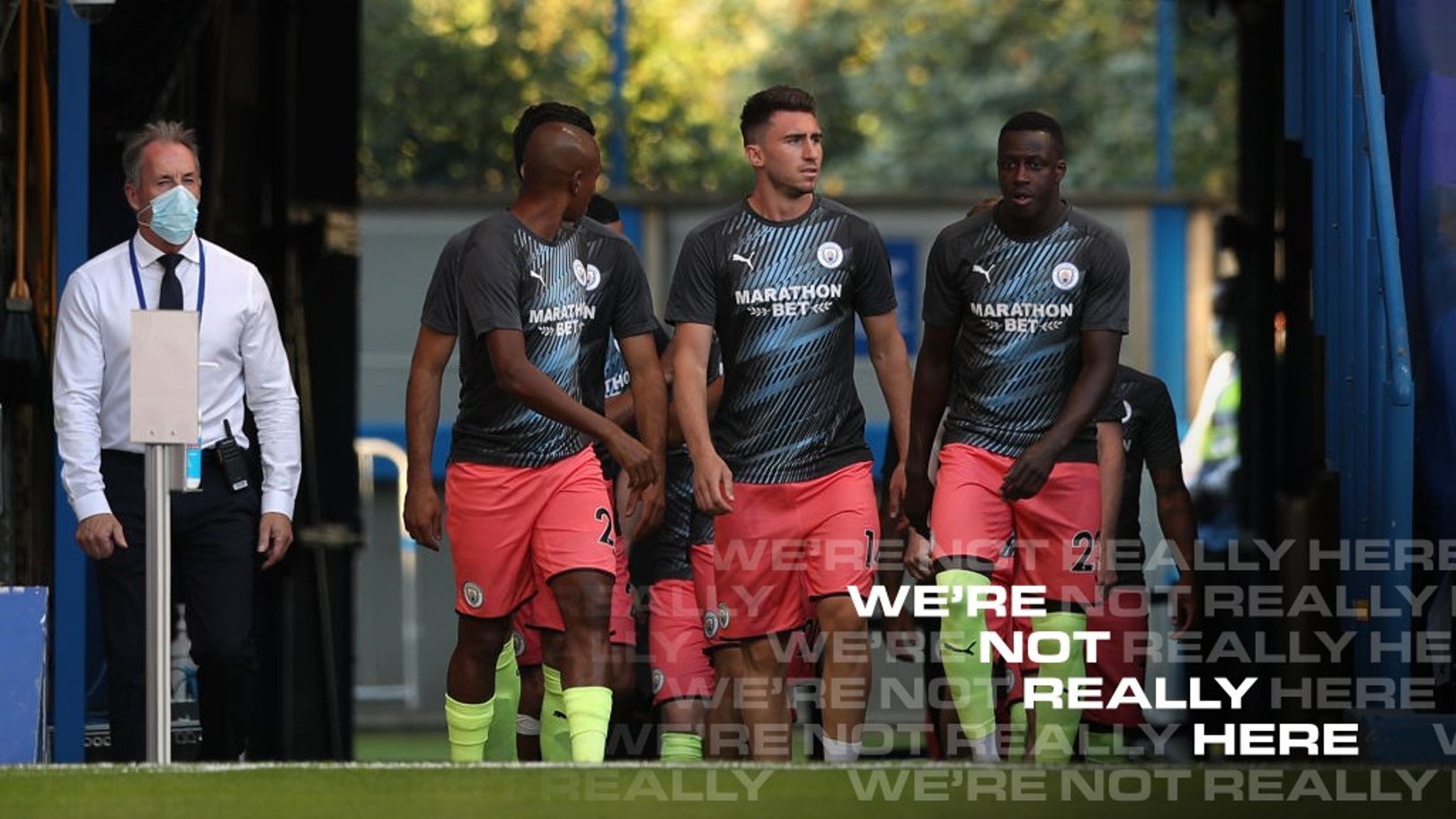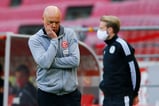They’d travel together on the team coach to a local railway station, where they would board a public train to London.
There, they would be met by another coach, which would take the entire party to a fully operational hotel, where they would have a pre-match meeting and meal before resting for a few hours.
That same coach would transport everyone to Stamford Bridge, where they would be free to enter the away team dressing room.
DONATE NOW | Cityzens Giving for Recovery
In there, they’d get ready in close proximity and do the same after the game, before taking a coach to the airport to fly back to Manchester.
It is a familiar routine for Pep Guardiola and his players.
A slick process meticulously planned by the operations staff responsible for ensuring the squad get to where they need to be without any issues.
But we’re not living in ordinary times.
COVID-19 has changed everything and the new rules and regulations which football must currently abide by meant City’s first away trip of the Premier League restart was a whole new experience.
How do you transport a professional football team the length of the country during a health pandemic whilst hotels remain closed?
“We had to make a few adaptions…” says Emily MacLennan, City’s Senior Football Operations Manager and the person responsible for every aspect of travel for the first team.
“We’ve taken the decision that, where possible, we will fly to all our remaining away fixtures instead of using the train, because the travel time is reduced.
“The train down to London takes about two hours and 10 minutes as opposed to a 45-minute flight, so we significantly reduced the amount of time the players spent in a confined environment.
“Also, with the technology that aircraft have these days – in terms of the air cleaning system – it was deemed a safer way to travel at the moment.
“We flew down on the morning of the game for Chelsea, which is normal for us.
“The players reported to CFA and travelled on two separate coaches to the airport, so we could social distance. The two coach drivers are part of the Premier League testing programme and will be tested twice a week.
“We social distanced whilst flying because we had 10 members of staff not travelling due to Premier League restrictions, so it was a lot easier to space out on the plane and then we were picked up by two coaches and driven to the team hotel.
“We had to look at totally different venues to what we’d normally use. The main reason being, most of the hotels in the UK are still closed, as per government regulations.
“Some of the hotels we’ve previously used for Chelsea are currently being used by NHS staff and we didn’t want to take rooms away from them.
“We stayed at a sister hotel of one we’ve used before for London games. It has been closed since the beginning of lockdown and it opened specifically for us, so our thought process was, it was the safest option possible.”
MacLennan worked with several members of the backroom staff to finalise plans, putting the wheels in motion once they had an idea of when the fixture would be.
There was liaison with Chelsea too, due to the changes City would encounter on arrival at Stamford Bridge, whilst the players also had to be briefed so they were aware of what would be different.
Given the size of the Etihad Stadium, City were able to allow Arsenal and Burnley to use the away changing room as normal, but that was not the case in West London.
“The players got changed in a health club that’s part of the Stamford Bridge complex,” adds MacLennan.
“We know these stadiums very well. We know the dressing rooms and how we set them up year on year.
“For this game we were going in a bit blind, but it’s the circumstances.
“Our kit staff arrived at Stamford Bridge at lunch time on the day of the game, which was slightly earlier than normal, so they had plenty of time to get set up.
“We had to think carefully about where we placed the players changing spaces. They have got to be two metres apart.
“We had to ensure they still had space for medical treatment and for pre-activation before they went out for warm-ups, so it took quite a lot of thought as to how we best set out the dressing room.
“Everyone did their best to get the setup as close as possible to what it is normal.
“The players and management have been very understanding of the fact there are restrictions and that it wouldn’t be what they are used to.”
But it is not just the first team squad who have been affected by the new protocol.
The Bentley Hotel in Kensington, where City spent the afternoon before the Chelsea game, had to make changes to its operation in order to accommodate the team.
Club staff had to assess the hotel’s health and safety documentation, whilst it also underwent a deep clean 48 hours before we arrived in London.
Nobody was allowed to enter the players rooms during that two-day period and the hotel operated with reduced staff so as to minimise the number of people the players could come into contact with.
Fortunately for City, The Bentley was well prepared for football’s return.
“Our Courthouse Hotel in Shoreditch hosts Premier League teams week in week out,” says Chris Blastland, Group Sales Director for Sport at Mastcraft Limited, who operate the hotel.
“Football is always on our mind. We always have to have someone in the hotel for insurance purposes, but we kept a team of six people that were crucial to the hotel reopening for football.
“They have all been working in lockdown, but the second football came back, they were the key people to run a football event.”
Blastland also made the decision to ensure the staff running The Bentley were people the Club were familiar with from previous stays at the company’s other hotel.
It was one of a number of changes the Mastcraft venue made without prompting.
“Nobody other than chefs were allowed in the kitchen,” added Blastland.
“That wasn’t a City rule, it was something we implemented. Our staff had limited contact with the team.
“Usually we would have had three supervisors, a head of F&B and six waiters running the meals for City. That’s a ten strong front of house team, along with chefs and cleaners.
“We ran the whole stay with ten people, including cleaners and security.”
City have four away games remaining this season and whilst we don’t want a repeat of the result from our trip to Chelsea, MacLennan is hoping the logistical side can be reproduced during these difficult circumstances.
“We’ll look to replicate what we did for Chelsea where possible,” she says. “But it’s going to get more challenging because hotels in the UK can reopen from 4 July.
“Wherever possible, we would look to have a hotel that is exclusive for us. Purely from a health and safety perspective.”












